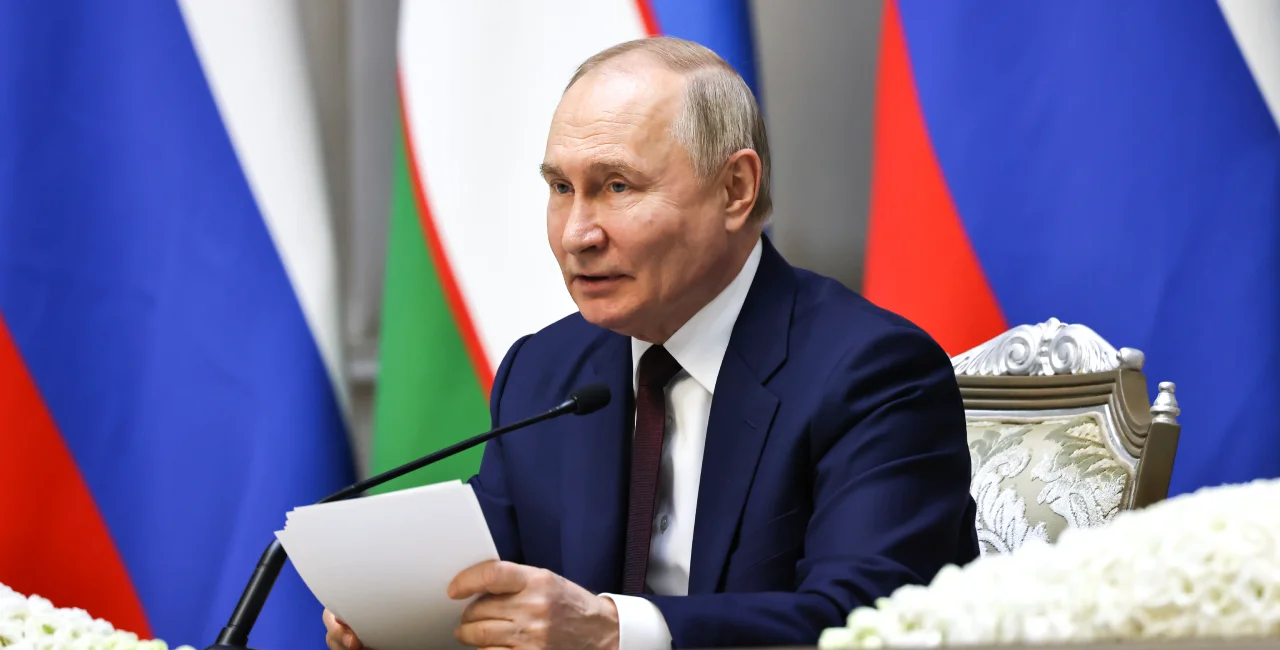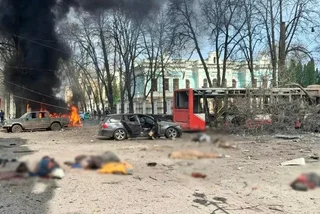Czech officials have expressed skepticism over Russian President Vladimir Putin’s announcement of a temporary Easter ceasefire, citing ongoing air raids in Ukraine minutes after the announcement.
The truce, which is set to last through April 21, is seen by many as an attempt to present Russia in a favorable light rather than a genuine move toward peace. Foreign Minister Jan Lipavský quickly dismissed the ceasefire as part of a larger pattern of Russian disinformation.
"The fact that just minutes after the announcement of the supposed Easter truce, air raid alerts are sounding across Ukraine shows how serious Putin is," Lipavský said in a statement to Czech News Agency.
Air raid sirens across Ukraine just minutes after the so-called Easter truce was announced show how serious Putin really is. Ukraine accepted the ceasefire a month ago. Putin keeps sabotaging every step toward peace. Don’t fall for his propaganda.
— Jan Lipavský (@JanLipavsky) April 19, 2025
Lipavský warned against being misled by what he called Russian propaganda, emphasizing that the Ukrainian government had already accepted a ceasefire proposal a month ago. In contrast, Moscow continues to undermine efforts toward peace, Lipavský argued.
View from Czech lawmakers
Pavel Fischer, chairman of the Senate foreign relations committee, echoed these concerns, reminding the public of Russia’s Christmas Day missile attack, when a reported 78 missiles and 106 drones struck Ukraine's energy infrastructure.
"I note that Vladimir Putin has declared an Easter ceasefire," Fischer said. "It's just that I don't trust the man even if he starts telling the truth. He missed his opportunity long ago."
Fischer, who has been a vocal critic of Russia's actions, argued that Putin has long missed the opportunity for genuine peace. "If Putin really wanted to, the war would have ended long ago," Fischer said.
Radek Vondráček, vice-chairman of the parliamentary foreign affairs committee, offered a different perspective, suggesting that the ceasefire could be a positive step, albeit one that requires further scrutiny.
In a statement to Czech News Agency, Vondráček described the announcement as the first of its kind after more than three years of war. He attributed the development to U.S. President Donald Trump's diplomatic efforts.
"Perhaps nothing needs to be added to this. Hopefully, there will be more good news soon," Vondráček said.
Continued distrust of Russian promises
Ukraine has remained steadfast in its refusal to trust Putin’s ceasefire proposal. Ukrainian President Volodymyr Zelenskyy and Foreign Minister Andrii Sybiha both expressed deep concerns about the timing and authenticity of the truce.
A report by the Commander-in-Chief.
— Volodymyr Zelenskyy / Володимир ЗеленÑький (@ZelenskyyUa) April 19, 2025
We are documenting the actual situation on all directions. The Kursk and Belgorod regions — Easter statements by Putin did not extend to this territory. Hostilities continue, and Russian strikes persist. Russian artillery can still be heard…
Zelenskyy condemned Putin’s actions as manipulative, accusing the Russian leader of using the ceasefire to play with people's lives.
"Just minutes after Putin announced the ceasefire, air defenses had to be deployed against Russian drones," Zelenskyy wrote on X. "This shows Putin’s real attitude towards Easter and human lives."
Ukraine has consistently called for a comprehensive ceasefire without conditions, a proposal that, according to Lipavský, had already been accepted in March with the backing of the United States.
In contrast, Russia’s demands—such as addressing the so-called root causes of the conflict and lifting Western sanctions—remain contentious, further complicating prospects for meaningful dialogue.












 Reading time: 2 minutes
Reading time: 2 minutes 




























